Mozambique: Judges must be 'sharp edge of knife' in corruption fight Watch
Mozambique: Chissano sees post-election crisis as ‘growing pain’ – interview

Photo: Lusa
Former Mozambican President Joaquim Chissano sees the social unrest following the October elections as a “growing pain” in the 50 years since independence, saying he is “surprised” by the qualities of the new head of state, Daniel Chapo.
“It’s a crisis of growth, perhaps. Our country has grown a lot in terms of population, knowledge, and communication. So you reach a point where everyone is talking simultaneously,” said the former president (1986 to 2005) in an interview with Lusa in Maputo.
Chissano succeeded Samora Machel, who proclaimed independence in 1975 and died in a plane crash in 1986. He was also the first democratically elected President of the Republic of Mozambique in the 1994 multiparty elections. He made several appeals for dialogue during the post-election crisis, which from 21 October last year to March caused around 400 deaths in protests, demonstrations, strikes and looting in the country.
Now, he stresses the importance of the pacification that is beginning to emerge in the country: “Fortunately, we are managing to calm down, so that we can really talk to each other, and not just talk to ourselves. And we talk to each other and find solutions.”
After months of violence, Daniel Chapo signed a political agreement on 5 March for the pacification of Mozambique with all political parties, which he described as a “new era” for the country, providing for several structural reforms. On 23 March, he met for the first time with Venâncio Mondlane, a presidential candidate who does not recognise the results of the October general elections, a meeting repeated on Tuesday, already against the backdrop of national pacification.
Joaquim Chissano, 85, the oldest of the three honorary presidents of the Mozambique Liberation Front (Frelimo), who has been involved in the guerrilla war since 1963, witnessed in 2024 the Central Committee’s choice of Daniel Chapo as the ruling party’s candidate for President of the Republic in the general elections on 9 October. After five months of Chapo’s presidency, he admits to being surprised.
“Well, it surprised me because I hadn’t spent time with him. I knew vaguely that he was the governor in Inhambane [southern province]. But when I saw how the youth praised him and wanted him to be the new president, to bring a new way of working, I also began to get excited,” he acknowledged.
The former president said he has always advocated the need for new blood in the party and the country, which he recognises has now happened with Daniel Chapo: “I always wanted there to be someone who would come and bring new things. That’s the meaning I gave to my retirement: to make way for those who could come up with innovative ideas. And that happened, and it happened very well this time.”
In a year that marks 50 years of independence for Mozambique, proclaimed by Samora Machel on 25 June 1975, Daniel Chapo, 48, was sworn in in January as the first President of the Republic to be born in the new country.
“His age is the age of independence (…) But we are pleased that he does not forget where we came from. He seeks to see where we came from, where we are and looks to where we are going. With all the innovations in dealing with people,” concluded Chissano.


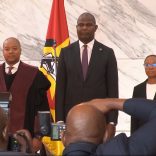
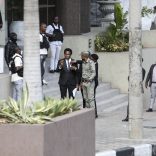
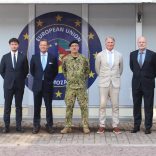
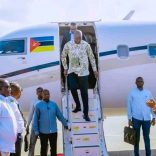

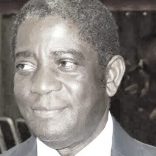





Leave a Reply
Be the First to Comment!
You must be logged in to post a comment.
You must be logged in to post a comment.